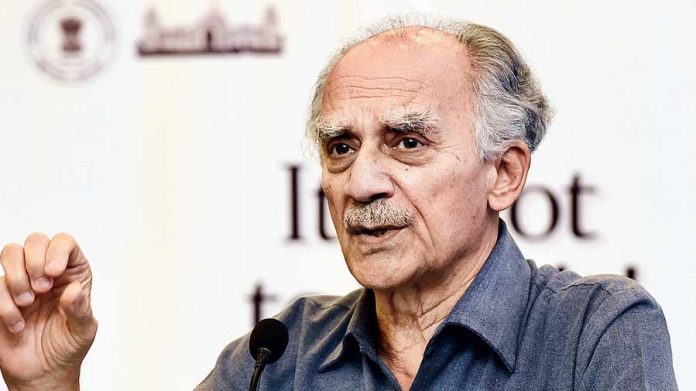New Delhi – Veteran journalist and former BJP leader Arun Shourie has sparked fresh debates with his latest book, The New Icon: Savarkar and the Facts, in which he critically examines the legacy of Vinayak Damodar Savarkar and challenges the ruling party’s appropriation of his image. In a recent interview on Badi Badi Baatein, Shourie dissected several myths surrounding Savarkar and took aim at the BJP’s ideological use of his name in contemporary politics, reported the Wire.
Shourie, a Magsaysay awardee and former Union Minister, dismissed the oft-repeated claim that Mahatma Gandhi had advised Savarkar to file mercy petitions during his imprisonment in the Andaman Cellular Jail. Calling such assertions “absurd,” he pointed out that Savarkar submitted his first mercy petition in 1910, while Gandhi was still in South Africa. He further refuted the notion that Savarkar and Gandhi were allies, citing strong criticisms Savarkar directed at Gandhi, including labeling him “mad” and a “British agent.”
While acknowledging Savarkar’s rational views on cow worship, caste abolition, and superstition, Shourie emphasized his deep-seated animosity towards Muslims. He traced this sentiment back to Savarkar’s childhood, noting his early involvement in vandalizing a mosque. Shourie also highlighted Savarkar’s contradictory stance—while admiring Muslim devotion to their faith, he ultimately envisioned India as a Hindu-majority state, a vision that closely aligns with current political narratives.
Shourie did not shy away from criticizing the present-day BJP, accusing the party of selectively interpreting secularism to serve its political goals. He argued that institutions and courts apply secular principles inconsistently, particularly when addressing hate speech from ruling party figures. “The law is used differently depending on who is speaking,” he remarked, pointing to the government’s tolerance of inflammatory rhetoric by its own leaders while cracking down on dissenting voices.
On the Uniform Civil Code (UCC), Shourie expressed general support but cautioned that its implementation must not be driven by communal motives. He urged Muslims to see it as a legal reform rather than a religious issue, while also warning against its potential misuse to target specific communities.
In The New Icon: Savarkar and the Facts, Shourie delves into Savarkar’s contradictions—his rationalist critiques alongside his Hindu nationalist fervor—and their lasting impact on India’s political landscape. The book raises critical questions about how historical figures are reinterpreted and leveraged in modern political discourse, making it a significant contribution to ongoing debates about Hindutva, nationalism, and India’s secular fabric.




